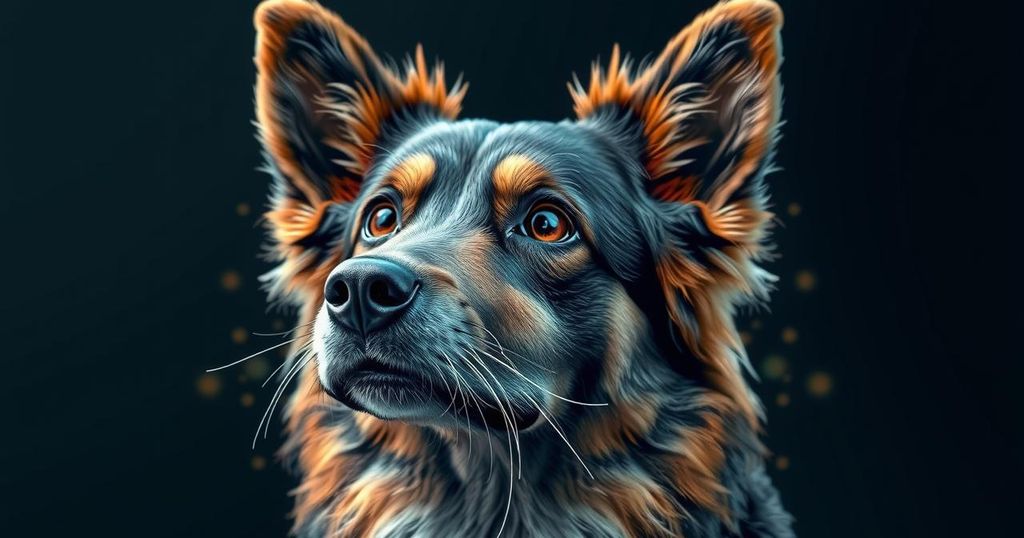Petnow, an AI platform for pet identification, uses biometric nose scans to identify pets, replacing traditional methods like microchipping. Founded in 2018 and awarded at CES 2022, it allows users to create profiles and scan their pet’s nose for identification. Despite claims of high accuracy, concerns remain about its effectiveness and the unique challenges it faces as a new technology in pet safety.
Artificial intelligence is not just for enhancing human technology; it’s also being applied to pet care. A notable innovation is Petnow, an AI-driven platform that replaces traditional pet identification methods like microchips and collars with biometric scans of pets’ noses. Founded in 2018 and recognized at the 2022 CES Innovation Awards, Petnow allows users to photograph their pets’ nose prints through a smartphone app, boasting a claimed accuracy of 99.9% in pet identification. The app functions by first requiring users to create a detailed profile for their pet, which includes uploading several full-body photos and other identifying information. Once the profile is established, the noseprint scanning process can begin, utilizing the phone camera to collect data on the pet’s unique nose features. This information is then used to generate a biometric identity for the pet. Additionally, Petnow offers alerts for lost pets and facilitates community support for pet recovery through its PetWay feature, enhancing the platform’s utility. Despite its promising technology, the app was not fully launched until 2023, raising questions about its long-term effectiveness and the potential need for an accompanying subscription model to fund ongoing development. It’s crucial to consider that, while Petnow represents a significant advancement in pet safety technology, there’s scant available data validating its efficacy as a replacement for traditional microchipping. As a novel approach, it indicates a shift towards utilizing biometric technology in pet care, although skepticism remains due to a lack of user experiences or comprehensive studies available at this stage. Ultimately, for pet owners, while Petnow may provide an innovative tool, traditional microchipping should not yet be abandoned as a reliable safety measure.
The article discusses the growing integration of artificial intelligence in the realm of pet safety and identification. Historically, pet owners relied on physical identification methods such as microchips or collars to keep their pets safe. However, with advancements in biometric technology, companies like Petnow are developing innovative ways to identify pets using unique biological markers, specifically nose prints. This shift towards AI and biometrics represents a broader trend in technology that aims to improve personal safety and identification through advanced data capture methods. Petnow’s emergence reflects both the potential and the challenges in adopting such technology on a wide scale.
In conclusion, while Petnow offers an innovative AI-based solution for pet identification, its newness raises uncertainties about its reliability compared to established methods like microchipping. The user experience and long-term effectiveness are still to be fully assessed, and it remains advisable for pet owners to continue utilizing traditional identification methods until further evidence can support the efficacy of this new technology. As technology evolves, ongoing development and user feedback will be critical in shaping the future of pet safety solutions.
Original Source: www.cnet.com





